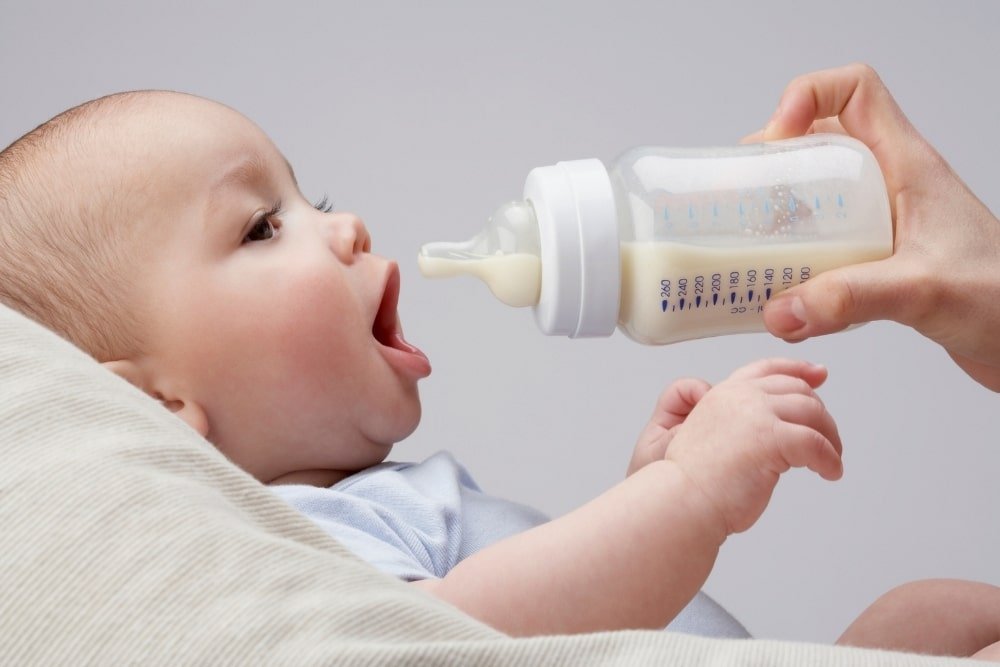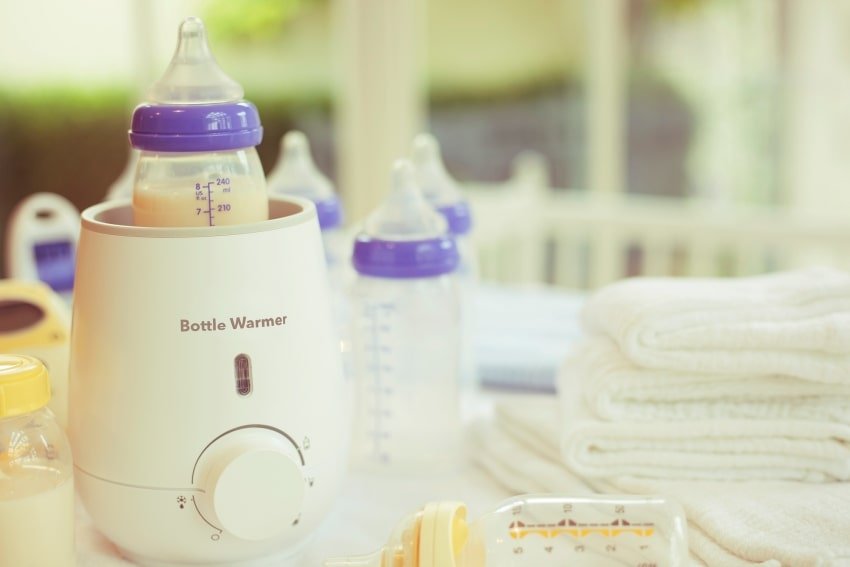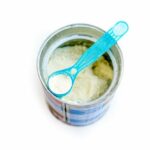Your baby’s feeding habits are probably among the top things on your radar as a parent. When parents start seeing a shift in their baby’s eating habits, panic can set in.
If your baby was a good eater and then suddenly changes habits, you instinctively assume there is a problem.
While that could be the case in some situations, there are many others where a baby stopped taking a bottle for a common reason, one that can be remedied.
Feeding problems aren’t that uncommon. Research shows that 25% of all parents report some type of feeding issue during their child’s development.
Knowing you’re certainly not alone can put your mind at ease that you’re not the only parent who suddenly has a baby suddenly refusing a bottle.
5 Reasons Why Your Baby May be Refusing a Bottle & How to Fix It
While all babies are different and may stop taking a bottle at different times, here are five common reasons why your baby may stop suddenly taking a bottle.
1. Your Baby Isn’t Hungry
When you’re not hungry, you don’t eat, right? Well, babies are no different. The only thing is that they can’t express it as well as you or I could.
While your baby may have been on a consistent feeding schedule, things can change as they get older. They may not want a bottle as frequently, especially if they’ve started eating some baby food.
You may assume that a cry means they’re hungry when they may not be the case at all. You may also think that if they grab the bottle, they must want to eat.
But, they may just be trying to explore. Here are some ways to decode your baby’s mannerisms to determine if the reason they’ve stopped taking a bottle is that they’re simply not hungry.
Signs Your Baby May Not Be Hungry
- Turns head away from the bottle
- Closes mouth
- Relaxes hands
- Pushes bottle away
If you notice any of these things, your baby may just not be hungry. Wait a little bit and try the bottle again. When your baby is hungry, they’ll eat.
View in gallery
2. Your Baby Wants a Different Nipple on the Bottle
When you start bottle feeding, you probably used the slow-flow nipples. This allowed your baby to get the right amount of milk or formula at the right place.
They weren’t struggling to suck on it and they weren’t trying to keep up with a flow that was too fast.
That can lead them to choke and can also make them gulp down their milk faster to keep up, causing them to swallow more air. This can cause gas.
As he gets older, your baby can handle a different nipple on the bottle that allows milk to come out more quickly at a pace he can handle.
So, while he’s hungry, he may be pushing the bottle away because he knows it’s going to be too much work and he’s not going to get what he wants. Changing the nipple flow can eliminate this problem.
While different nipples have suggested ages on them, we all know babies develop at different stages. Use cues from your baby to determine when it may be time to change the nipple.
This will keep him from becoming frustrated and give you peace of mind that he’s eating again.
3. Your Baby is Teething
When your baby is teething, they’re experiencing pain they’ve never felt before.
It’s kind of like when you’re going through childbirth for the first time! Their gums are hurting them as each tooth makes its way through the gum line.
- Gift of Love: If you’ve been looking for a cute and functional gift for CHRISTMAS or baby shower, baby stockings stuffer or holiday presents, ANGELBLISS baby teething toys is a hit for baby shower, Thanksgiving, Christmas, and any other gift-giving occasion. It would be the little piece that makes your gift just a little bit fancier and stand out from the rest. Give the gift they’ll remember and thank you for in years to come.
- Soft and Flexible: Unlike other teething toys that are stiff and hard, the ANGELBLISS teethers are carefully made with the perfect texture for chewing and soothing your baby gums. Perfect for assisting in the eruption of front, middle and back teeth. You can also freeze them so they will make your babys teeth more comfortable.
Prices pulled from the Amazon Product Advertising API on:
Product prices and availability are accurate as of the date/time indicated and are subject to change. Any price and availability information displayed on [relevant Amazon Site(s), as applicable] at the time of purchase will apply to the purchase of this product.
As this process is happening, the sucking motion from the bottle may put extra pressure on their gums.
So, when you’re forcing them to take the bottle, they’re associating that with more pain on their gums, so they suddenly start refusing the bottle.
Once the tooth has cut through, he’ll most likely want his bottle back again. In the meantime, try teething toys and massaging his gums to ease the pain.
Some parents give their babies a bottle at a more elevated position. This can alleviate some of the pain they are experiencing when getting the bottle at a lower angle.
4. Something About the Milk/Formula is Different
You may think you can pull a fast one on your baby by suddenly changing formula or doing something different with the bottle. But, they’re smarter than you think! They’ll pick up on it and won’t take the bottle anymore.
View in gallery
Is the temperature different?
If you’re heating the bottle up more or less, your baby may not like the change.
Always test the milk or formula on your wrist to see the temperature before giving it to your baby. Be consistent with the temperature so that your baby won’t refuse the bottle.
Did you change the formula?
If you changed the formula because they were out of your usual brand or one was on sale, your baby may pick up on it. There are many different formulas for infants and newborns. When you find one your baby likes, you may want to stick with it.
Is the consistency the same?
Changing the consistency of your formula to water ratio could cause your baby to stop taking the bottle suddenly. It’s just like swapping out the main ingredient in a recipe.
You’ll notice the difference. Keep things the same if your baby was always taking the bottle. There’s no reason to switch unless there’s a problem or your pediatrician recommends it.
If you’re giving your baby defrosted breastmilk and he’s refusing it, it may be because of changes that can occur during the freezing and thawing process.
One common probably is too much lipase in the milk. When the fats in the milk are broken down, it can change the taste of the milk which leads some babies to refuse it.
5. Your Baby Doesn’t Feel Well
When you’re sick, you may lose your appetite. The same thing can happen to your baby. If your baby has a cold or stomach bug, they may not want their bottle.
What they may be looking for is some extra TLC. Give them extra hugs to get them on the mend so that they can resume their normal eating patterns.
If your baby is congested, tried feeding him at an elevated angle. This can help him breathe better while sucking on his bottle.
More Bottle Feeding Tips
Here are some other tips to consider when your baby stops taking the bottle suddenly:
View in gallery
Eliminate distractions
When it’s time to eat, it’s time to eat. Any music, toys, or anything else that could distract your baby should be eliminated when it’s feeding time.
Stay calm
While you may be getting frustrated that your baby won’t take their bottle anymore, try not to show it. Babies feed off of our energy. When they see us getting flustered, they’re more likely to do the same.
Take a deep breath, and even a timeout if you have to.
Don’t force it
If you’ve been trying to give your baby a bottle for an hour and he’s just not having it, don’t force it. Limit mealtimes to 30 minutes. If he hasn’t taken it during that time, try again later. He obviously wasn’t interested in the first time.
Maintain a routine with mealtime
Babies love a routine. It lets them know what to expect. Creating a routine around mealtime can help to relax your baby so he won’t refuse his bottle.
Also, keep in mind how much other food your baby may be getting if he’s started some solids. When babies start eating solids, they tend to take less of their bottles because they’re getting full from other sources.
When Should I Call the Doctor?
If your baby is still refusing a bottle and you’re still stumped, you may want to call your pediatrician. There may be something you’re missing that could be behind your baby’s sudden bottle strike.
Here are some other reasons when you should call the doctor if your baby is not taking his bottle.
- Fever
- Diarrhea & vomiting
- Constant crying
- Difficulty breathing
If your baby is showing any of those symptoms, call your pediatrician. There could be an underlying reason why they’ve suddenly stopped taking their bottle.
As always, if your mother’s intuition is telling you something is not right, it’s always best to call your doctor, especially if you’ve ruled out many of the common reasons why babies stop taking their bottles.






